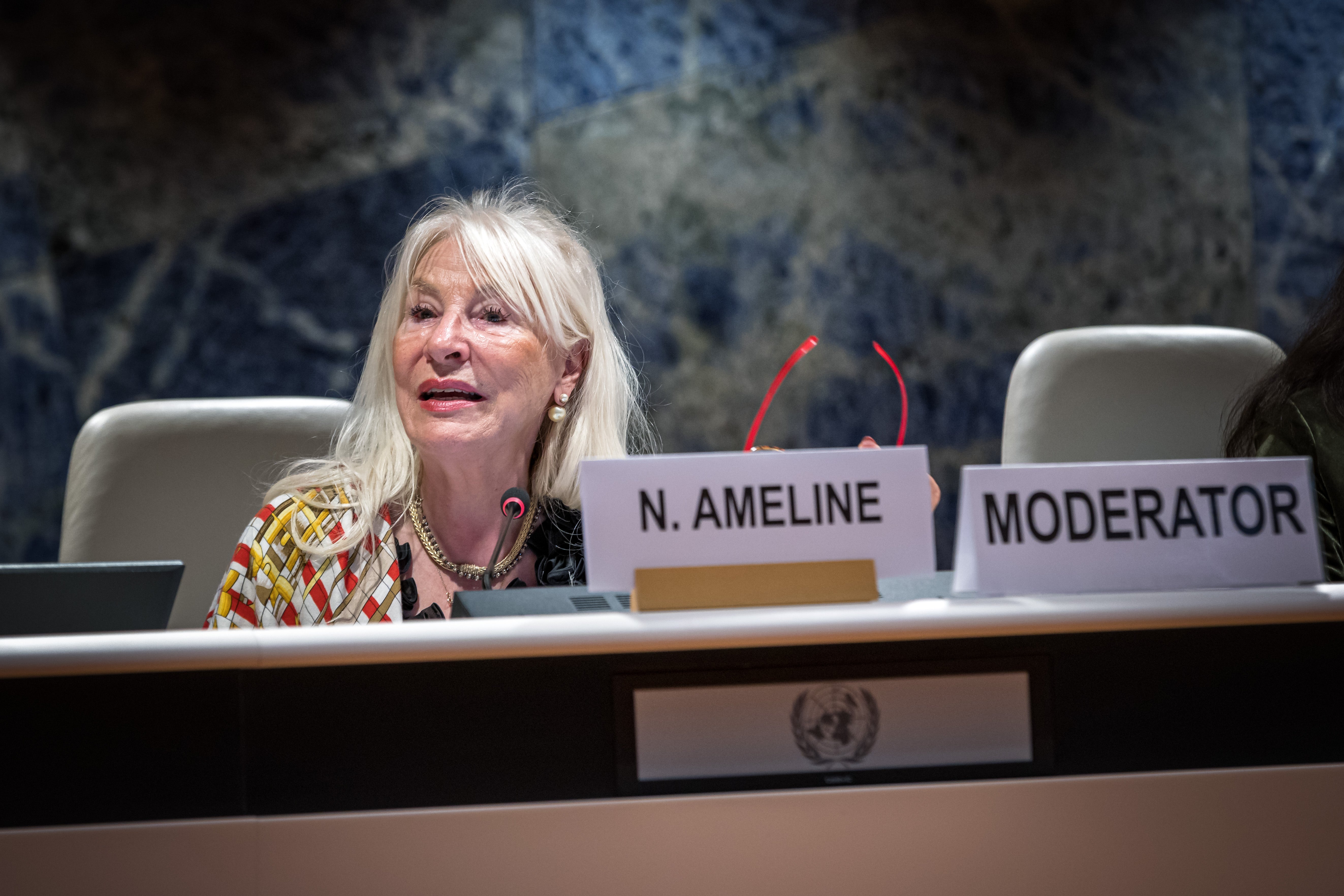In the words of Nicole Ameline: “The time for 50/50 gender parity is now”
Date:

Dr. Nicole Ameline has dedicated her career to promoting women’s rights and gender equality. She previously served as the Chair of the UN Committee on the Elimination of Discrimination against Women (CEDAW). Her career spans decades of public service, including roles as a Minister in the French government and Ambassador-at-Large to the International Labour Organisation (ILO). In addition to her current roles, Dr. Ameline chairs the International Institute of Human Rights and Peace and serves as an Honorary Member of the French Parliament. She continues to bring her expertise to key international dialogues and initiatives. At the Beijing+30 Regional Review Meeting on October 21-22, 2024, Dr. Ameline moderated the thematic session "Women in leadership and their full and equal participation in decision-making in the UNECE region." We had the opportunity to discuss with her the key takeaways from the session, reflecting on both progress made and remaining challenges in women’s leadership across the UNECE region.
“Looking back at 30 years since the Beijing Declaration and Platform for Action, we have seen positive changes in the UNECE Region through the CEDAW Convention’s implementation. However, progress has been slow, insufficient, sometimes regressive and marked by a lack of steady and systematic advancement. While more women are entering politics, their presence in high-level positions, diplomacy, and international negotiations remains limited. This slow evolution prevents us from achieving the critical mass of progressive women leaders needed for transformative change.
The discussions at the Beijing+30 Regional Meeting revealed that to address this challenge, we need to focus on three key actions: acceleration, innovation, and mobilization. First, we must accelerate progress by developing an ambitious strategy for achieving parity by 2030. This means revising our constitutional and legislative frameworks to ensure women’s equal representation is not just encouraged but guaranteed. Second, we need feminist diplomacy, which brings a fresh perspective on conflict prevention, negotiations, and peacebuilding. Third, and perhaps most importantly, we must mobilize new generations as the main drivers of change.
The time for 50/50 gender parity is now, and it has to be considered a right and an essential resource to address all the disruptive challenges we face today.
To achieve this, we need a radical change. Persistent patriarchal systems remain at the root of women’s underrepresentation in politics and decision-making. In response, the CEDAW Committee has developed General Recommendation No. 40 (GR 40), which provides a comprehensive roadmap for achieving 50/50 parity. GR 40 is the tool for implementing the vision of Beijing +30 in an effective and transformative way.
We need strong laws and immediate action to ensure safe and secure environments, particularly for women running for office, women in elected positions, and women’s rights defenders. This includes tackling new forms of violence, such as cyber harassment, which can discourage women from participating in public life.
My own journey has shown me that the education I received at home and in school gave me the confidence to take on high-level responsibilities, even in traditionally male-dominated fields like security and defence. Today, ensuring full access to higher education, particularly in areas like digital technology and addressing global challenges such as climate change, is a top priority. Although I have always been respected in all my roles, I have often felt like an exception in a political world where women are nearly excluded. This has only strengthened my commitment to advancing gender parity in France and worldwide.
To achieve real change, we must engage men as partners in this transformation. GR40 emphasizes the importance of involving young generations – both women and men – as active partners in driving change. It is not just about ‘leaving no one behind’; we must actively ‘bring everyone along’ to achieve parity.
This means reconsidering how we distribute decision-making roles. Currently, these roles often reflect and reinforce gender segregation. True equality means making all roles accessible to both women and men at all levels, redefining how we share power, and bringing diverse perspectives to the table.
As we look toward 2030, we must understand that achieving 50/50 parity is a crucial prerequisite for building truly inclusive and effective democratic institutions. By implementing GR40 and maintaining sustained commitment from all stakeholders, we can create the systemic change needed to achieve equal representation of women in all spheres of decision-making and to build a lasting peace.”
The views expressed in this interview are those of the authors and do not necessarily represent the views of UN Women, the United Nations or any of its affiliated organizations.